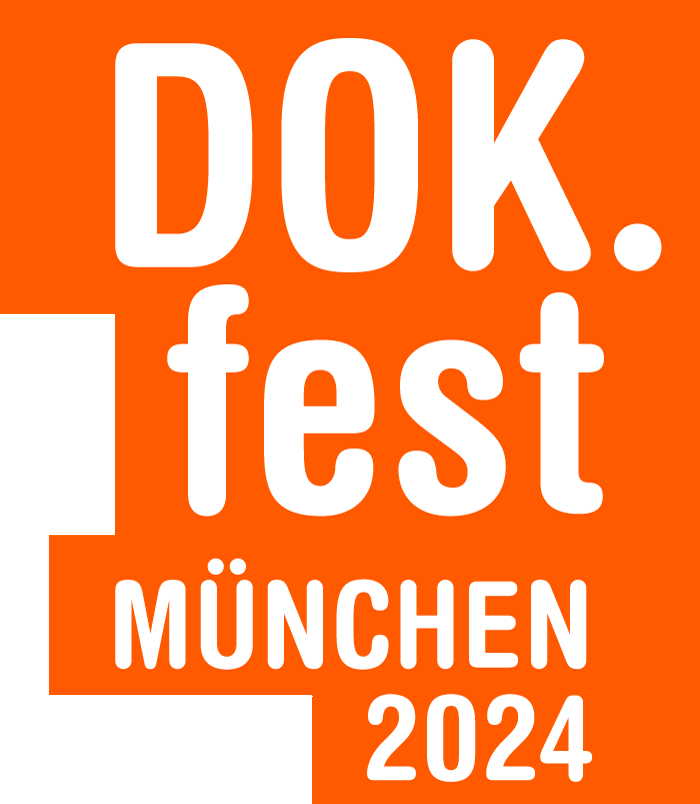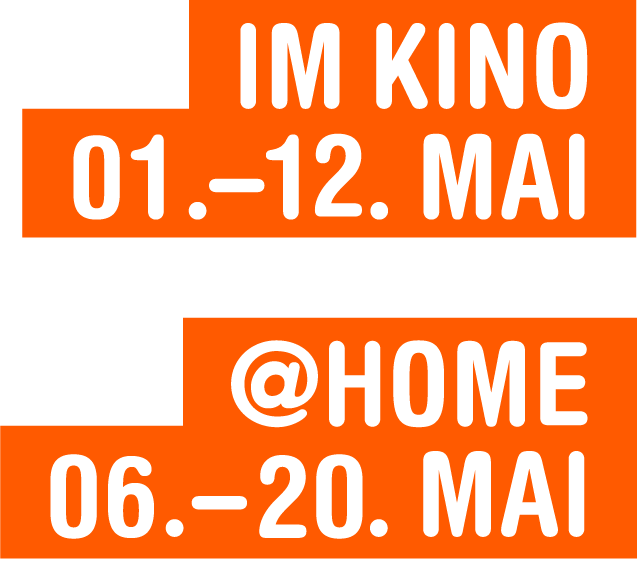Cinema is dead, long live cinema!
Confessions of a film festival that is going online
by festival director Daniel Sponsel
In recent years, DOK.fest München has seen an enormous increase in the number of audiences, which goes far beyond the usual potential of the regular distribution of documentaries in the cinema. There are two reasons for this: On the one hand, DOK.fest München offers all the attractions of such an event, a carefully curated and exclusive film programme: series, competitions and awards, accompanied by film talks with guests from all over the world. On the other hand, the festival succeeds in winning over various specific target groups with a high level of commitment and individual approach.
Due to the measures taken to contain the spread of the corona virus, DOK.fest München cannot take place regularly at its familiar venues again this year and is now coming home to our audiences as DOK.fest München @home. The key questions are the significance and success of this project and the lessons that can be learned for the industry in the event of success or failure.
Only cinema can do what cinema can do.
Anyone who has ever experienced the opening of DOK.fest München at the Deutsches Theater with us is enriched by a film experience and knows about the pure energy that arises when 1,500 people share emotional moments together, laugh or are touched. Year after year, the documentary film proves in this hall that it is both a documented reality and a cinematic experience. Unfortunately, no cinema would be helped if DOK.fest München were to be cancelled. The online edition of the festival is not a statement against the art of film in the cinema, but a sign of life for these extraordinary documentary films in general, which would not be seen anywhere beyond the festival.
Video killed the Radio Star.
The new seems to be the death of the existing. This is how the development of our cultural techniques can be described from an emotional perspective. Where the emphasis must be on "seems": Until now, no cultural technique or even cultural genre has been buried by its further development. And, never before has it been possible to prevent a new cultural technique from functioning and becoming effective because the existing one was so good after all. Up to now, the producers of culture and the artists have always taken possession of this new technology at an early stage, used it to their advantage and developed it in every form. Concretely formulated: We will not get people back into the cinemas if we think we can dictate to them the way they have to see films. The market is too big and too liberal to be regulated.
Uncharted territory of the World Wide Web.
More than seven years have passed since Chancellor Angela Merkel launched her often quoted and mostly smiled at sentence about the "uncharted territory of the Internet". How far-sighted and comprehensive she has grasped the current situation is something we all experience in the field of school and education. Even the online edition of a major film festival cannot be taken for granted today. The current situation forces us to go down a path that already exists as a technical possibility, but with which we are struggling in every respect. At the latest since more and more providers in the film market have been successfully online and have been unhinging our familiar production and distribution chains, we are aware that the future demands that we break new ground. Now the temptation is great to use the Internet as it offers itself: as an opportunity to operate worldwide. That cannot be the interest of a festival that is anchored in time and place. The online edition of DOK.fest München will therefore only be available throughout Germany and for a period of 18 days. This is a very important measure to ensure that the films can be exploited further.
Money makes the world go round.
Currently, numerous cultural providers on the net are reacting to the restrictions imposed by the Corona crisis with well-intentioned offers - free of charge, of course. This is a fundamentally questionable signal, even or especially at this time. After the lifting of the restrictions, film culture will continue to be seen on the net, just as it was in previous years. In this way, we are continuing to push forward the real birth defect of the Internet: the apparently copyright-free world of digital content. Even in its online edition, the films of DOK.fest München can only be seen with a ticket or festival pass. In addition, there is the extra ticket with a solidarity fee for our partner cinemas. All prices are set lower than the regular admission to the cinema, but significantly higher than the offers of competitors from Silicon Valley. The film artists who create these works with a high degree of individual commitment are at the end of a fragile distribution chain. Cinematic art has its price, even online, and there are enough visitors who feel the same way.
A film festival online: is that even possible?
A festival feeling is created by the meeting of many people in a cinema hall with the films on the big screen and the discussions with the makers after the screenings. DOK.fest München cannot offer both of these in its online edition. What we can offer, however, are the films. We have already had the positive experience that the majority of rights holders like to stay with their films and are curious about what an online edition of our festival means for the presentation of their films. There are also the series and competitions in the online edition, analogous to the festival on location.
In addition, there will be (live) film talks, which we have never been able to conduct on location in this way before. In video conferences, our presenters now not only talk to the makers, we bring team members and the protagonists into the discussion - almost emission-free, more inclusive and sustainable in every sense. As a further opportunity for exchange, we invite you to a virtual Meet & Greet this year. In addition, our viewers have the opportunity to get in touch directly with the filmmakers via „Post to the Film Team".
"Never let a good crisis go to waste“ (Winston Churchill)
We have to assume that we as a whole society cannot return to the initial mode after this crisis. This crisis is too substantial for that; the needs in our affluent society are too pronounced for that. This begins with our physical contact during greetings, this applies to the freedom to travel, to consumption in general, to major events in particular and certainly also to the cinema. In the near future, cinema must not only be able to endure coexistence with the Net, but must demand it. Only cinema can do what cinema can do, it must work with its irreplaceable qualities.
DOK.fest München @home – a film is a film is a film!
Inspired by a wonderful text by the artistic director Jochen Schölch about the theatre: The documentary film celebrates life in its contradictions and brokenness. It tells us stories about humanity and its fallibility, about everything that makes us human. Documentary films are above all living places of memory. Everything that seems to be completely present on screen is in reality already past and releases us into an uncertain future. Our awareness of this uncertainty is the essence and grants us the freedom to choose our further path.
When asked in an interview back in 1997 what the future of documentary film might hold, Werner Herzog remarked: "No matter through which channels we reach people with our films in the future, it will always be about showing them that they are not alone.
What drives us and what motivates us to venture an online edition with DOK.fest München? Maybe you will actually watch our films at home alone this year, but you will share the ideas and ideals of the makers and the people in front of the camera who tell their story just for you.




